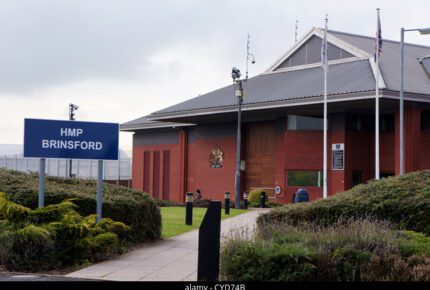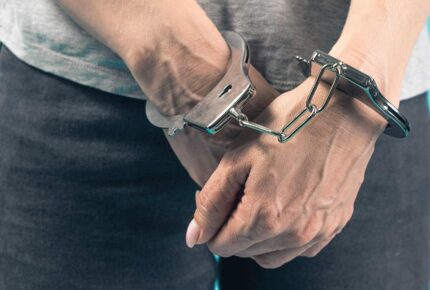

With early and specialised legal support, it is entirely possible to navigate difficult extradition situations effectively. If you or someone you care about has been arrested or charged under an extradition order, your first step should always be to get help from a solicitor promptly, as this can significantly impact the outcome of your case. This article aims to address some frequently asked questions that you may have, giving clear explanations so you can better understand your position and rights. We’ll discuss important topics such as whether you need a solicitor when facing extradition orders, the potential defences your solicitor could raise against extradition, and considerations regarding bail applications in these cases.
Do I need a solicitor for extradition orders?
Extradition orders involve complex legal processes, often governed by international treaties and specific national legislation. Given the seriousness of extradition and its significant implications on your freedom and personal circumstances, securing experienced legal representation is highly advisable.
A solicitor specialising in extradition cases will understand the complexities associated with both domestic legislation, such as the Extradition Act 2003, and international agreements. They will be able to guide you through the procedural aspects of proceedings, prepare your defence, and offer expertise to challenge extradition requests on legitimate grounds.
Other ways a solicitor can help include:
- Clearly explaining the extradition process, ensuring that you fully understand your situation and your rights at each stage.
- Assessing the strength of the requesting country’s case and identifying weaknesses or errors in the extradition request.
- Representing you during hearings, ensuring your case is competently and robustly presented.
- Identifying human rights concerns, such as unfair treatment or possible breaches of your right to a fair trial in the requesting jurisdiction.
- Negotiating bail conditions to minimise disruption to your personal or professional life during the extradition process.
- Providing advocacy and guidance in making any available appeals if the extradition order goes against you.
If you’re subject to an extradition request, it is strongly recommended that you contact an experienced extradition solicitor without delay.
What are possible defences for extradition orders?
One commonly raised defence is the argument of ‘double jeopardy’, which means that you have already been tried and either convicted or acquitted for the same alleged offence. Under UK law, it is generally considered unfair and unlawful to be prosecuted more than once for the same crime.
Another defence involves human rights considerations. If extradition would breach your human rights under the European Convention on Human Rights – for example, you might face torture, inhuman or degrading treatment, or an unfair trial – then this could be raised as grounds to resist extradition. Similarly, personal circumstances can sometimes be relevant, such as serious health conditions that would be inadequately treated in the requesting country.
It is also possible to challenge an extradition request based on procedural or technical grounds, such as:
- Arguing that the offence is politically motivated or that you are being prosecuted because of reasons such as race, religion, nationality or political opinions.
- Contesting that the time limit or statute of limitations for prosecuting the offence has expired.
- Claiming that the evidence provided is inadequate or does not support the charges against you.
You could also challenge extradition if the alleged offence is not recognised as criminal under UK law, known as the principle of dual criminality. In simple terms, the crime you are accused of must also be considered a criminal offence here in the UK for extradition to be justified.
Will I get bail for extradition orders?
Extradition proceedings are often lengthy and complex, leading to understandable uncertainty regarding your rights and freedoms during this period and an eagerness to secure bail so you can live relatively freely until decisions are made.
Whether or not bail is granted depends on several factors, typically considered carefully by the court. These include:
- The seriousness of the allegation against you.
- The strength of your ties within the UK, such as family, employment and community connections.
- Your previous criminal record, especially regarding compliance with bail conditions.
- The potential risk that you might abscond or attempt to evade justice.
- Cooperation demonstrated during the initial phase of the extradition process.
Bail conditions in extradition cases are often stringent and may include measures like reporting regularly to a local police station, surrendering your passport, or observing a curfew.
Will I have to go to court if I’m arrested or charged for extradition orders?
In the UK, extradition proceedings always involve a court hearing. Typically, after your arrest, you will initially appear before a magistrates’ court, usually Westminster Magistrates’ Court if you are arrested in England or Wales. It’s vital you attend any scheduled court hearings, as failing to do so could lead to your arrest on a warrant and can negatively impact your case.
The process usually involves:
- An initial hearing, where the prosecution presents the extradition request to the court.
- A timeframe given for you and your solicitor to prepare your defence, gather evidence, and make any necessary arguments against extradition.
- An extradition hearing, during which your solicitor can challenge the request by the foreign jurisdiction on grounds such as human rights violations, procedural errors, or if extradition would not be proportionate or fair.
If the court decides the extradition request is valid and lawful, you still have avenues of appeal: in the first instance, you could appeal to the High Court, and potentially as far as the Supreme Court or European Court of Human Rights, depending on the circumstances involved.
Will I go to jail if found guilty of extradition orders?
Remember that extradition proceedings themselves are not about determining guilt or innocence regarding the alleged crimes abroad. Instead, these proceedings decide whether you should be legally handed over to another jurisdiction to face trial or sentencing.
If the court grants an extradition order against you, it means you will be transferred to another country where you are wanted for criminal charges or to serve an existing sentence. Remember, however, that the decision made by a British court in extradition hearings is not the same as being convicted of a criminal offence here in the UK; it is purely a decision regarding your surrender to face justice in another jurisdiction.
Whether you go to jail ultimately depends on various circumstances, such as:
- The severity and nature of the crime alleged against you in the requesting country.
- The criminal laws and sentencing guidelines applying in that country.
- Whether you are convicted in that jurisdiction after being extradited.
- Any sentencing considerations or mitigating factors recognised by the courts overseas.
Will I go to jail if it’s my first offence involving extradition orders?
Extradition proceedings are not in themselves criminal trials, so the outcome of an extradition case is not tied to whether or not you will ultimately be found guilty and potentially sent to jail. Rather, extradition is a process that involves hearings to assess whether the extradition request from one country meets the necessary legal requirements under UK domestic and international law.
In the end, remember that jail is not an automatic outcome solely because this is your first involvement with extradition matters. Courts will carefully evaluate all relevant information provided, and a knowledgeable solicitor will advise you on the possible outcomes from the outset, guiding you through this challenging legal process and working towards the most favourable resolution.
Can I get Legal Aid for extradition orders?
Legal Aid may be available for extradition proceedings in England and Wales, depending on your individual circumstances. Extradition orders can have far-reaching consequences on your personal freedom, and the law recognises the importance of ensuring adequate legal representation in these situations.
Whether or not you qualify for Legal Aid will depend on two primary factors:
- Means test: This assessment checks your financial circumstances, including income, savings, property and any other assets, to decide whether you meet the financial eligibility criteria for Legal Aid.
- Merits test (the interests of justice test): This test looks at the details and complexity of your extradition case, assessing whether it is appropriate and in the interests of justice to provide public funding for legal representation.
The Legal Aid Agency will consider both your financial eligibility and the specific details of your case before granting funding. Given the complexity involved in extradition matters, it is advisable to consult a criminal defence solicitor as soon as possible. A specialist solicitor can assist you with the Legal Aid application process, ensuring that you present your circumstances clearly and accurately, and that you receive professional representation tailored to the specific challenges of extradition law.
Where to get more help
If you or someone you care about is facing extradition orders, it is so important that you take swift action to engage a qualified criminal defence solicitor who understands the complexities of English criminal law and can clearly explain your options. At Stuart Miller Solicitors, our experienced legal team provides compassionate guidance and robust defence strategies tailored specifically to your case. If you require dependable and professional support at this critical time, get in touch today for a free consultation.
OUR COMMITMENTS TO YOU:
-
Responsive
A legal expert will consult you within 24 hours of making an enquiry.
-
Empathetic
We will always treat you with trust, understanding and respect.
-
Specialised
Your case will be handled by an expert who specialises in your type of offence.
-
Proactive
We will take early action to end proceedings as soon as it is practically and legally possible to do so.
-
Engaged
You will be kept updated on your case at all times. We will provide a named contact available to answer your questions.
-
Caring
We understand this is a difficult and stressful time for you and your family. Our team will support you every step of the way.
-
Tenacious
We will never give up on your case. We fight tirelessly to get you the best possible outcome.

